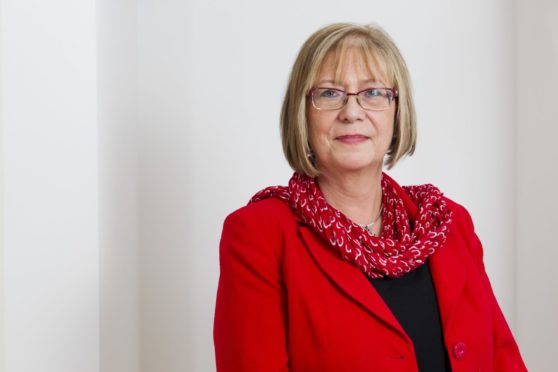
She was one of Scotland’s first MSPs and, more than two decades later, Elaine Smith remains as passionate and determined as the day she was elected.
A lifelong socialist and a relentless, successful campaigner for change, she has since the first day of the Scottish Parliament battled inequality, with a special focus on issues affecting women.
But, as she prepares to stand down because of health issues, Smith admits there is one thing she will not miss in politics: the relentless abuse of women in public life.
After The Sunday Post detailed the everyday outrage of hateful abuse directed at women in public life last week, Smith looked back on her career and admits the problem is worse than ever.
Sadly, she acknowledges, in a view shared by many women in politics, increasingly aggressive and misogynistic abuse. She said: “I find it deeply distasteful because we have all fought so long and so hard to banish discrimination, inequality, misogyny and still it remains, like a shadow over all we have achieved.
“We have come so far, but there is still so much further still to go. Young women should be encouraged to play an active role in politics, we must ensure there are robust systems in place to protect them from harassment or abuse so they feel confident, protected and supported.”
With bleak irony, she says the fall-out from Scotland’s controversial Hate Crime Bill and, in particular, the rancorous debate around the promotion of transgender rights and alleged threat to women’s rights have inspired more hateful abuse than any other issue.
The politician, 57, who is respected across all parties, said: “How can Scotland have a Hate Crime Bill which doesn’t include women, at a time when we still have unacceptable levels of domestic violence and brutal sex crimes yet organisations supporting those victims struggle financially to keep going?
“It’s nonsensical and it’s dragged us back years instead of moving forward to a society where we all feel protected.
“That, and the opposing views surrounding transgender issues and women-only spaces, have encouraged more hateful abuse than I care to think about over the years I’ve spent in politics.
“Online hate has encouraged extreme views and aggression from those who don’t agree with you. And when you can’t argue your viewpoint face to face, or listen to each other before agreeing or disagreeing, the onslaught from these faceless critics can feel intimidating and sinister.
“Transgender issues and women-only spaces are even more polarising and have become a source of extreme views and threatening behaviour more than anything else I’ve encountered.
“It’s even got to the point where there has had to be police or security at a women’s rights event I’ve attended. That kind of intimidation is unacceptable, and while there are many things I will sorely miss, behaviour like that is something I no longer wish to face.
“I fear it will actively dissuade good women and men coming into this job and that’s not healthy.”
It is not that the former teacher and trade union activist has ever been afraid of confrontation or fighting her corner, particularly when any fight is on behalf of the most vulnerable. Far from it, in fact.
She said: “I leave unfinished my Right To Food Bill which I want to see enshrined in law so no family in Scotland should ever fear going hungry, and I trust those coming behind me will make that important work a reality. Free school meals for all has always been something I believe Scotland should give every child.
“So many women’s health issues are still being neglected, you only need to look at the thyroid scandal and the mesh implant scandals to see that.
“Although things have improved since 1999, women remain underrepresented in public life and suffer disproportionately from the effects of poverty and unequal distribution in wealth and power.
“We still have far too many unresolved issues over pay, flexible working, and the effects of Covid-19 and the lockdown has had a disproportionate impact on women who have faced unpaid caring and job losses, particularly in industries which already had low wages.
“Cuts to the public services so many women rely on for support and employment, along with the increase in violence and brutal sex crimes against women while financial aid to those who help them is disappearing, is a tide which must be turned.
“The only way to do that is to ensure we have strong women taking their place in parliament and government, challenging wrongs and finding solutions.
“Scotland has many bright young women who must feel able to follow in our footsteps.”
Elaine has seen the camaraderie that was evident, even between political opponents, slowly change from the beginning of the Scottish Parliament in 1999.
She said: “We were all in the same boat, new to these privileged positions and eager to make change with the powers we’d been given. In the early years we’d mix with each other quite freely, enjoy robust debate and find ways to work together for the good of all.
“Parliamentary debate has often become more combative, as everyone has seen in recent times, and that can encourage aggressive social media attacks which can be deeply unpleasant particularly when they become personalised.”
Elaine remains proud of some of the stand-out political changes she championed, particularly her 2005 Private Members Bill on breastfeeding.
At the time, there was no social media but she still received nasty letters and was the brunt of misogynist jibes.
Elaine said: “I realised as an MSP I could drive the change that was needed.
“It came from my own experiences as a young mum, questioning why I should have to take my baby son Vann into a toilet to feed him.
“It was my first Private Bill, and it failed first time. But it was so important, I persisted and it was passed.
“I remain very proud of what was achieved, and I smile when I see young mums today feeling unconcerned about breastfeeding in public.
“So many mums told me they felt liberated. I’ve no doubt that if I’d drawn up the same Bill today, the deluge of online hate would be pretty vitriolic.”
Only men can solve this. Only men can take ownership of this
– Baroness Helena Kennedy
Men must take ownership of the everyday abuse and harassment of women if it is to be curbed, according to the leader of a Scottish government taskforce.
Baroness Helena Kennedy warns the seeds of abusive behaviour are sown in childhood and, unchecked, they can end with men committing acts of violence against women.
Kennedy, who is leading a Scottish government working group examining whether misogyny should be made a criminal offence, says she sees evidence of it all around her, and it has to stop.
She said: “It starts when boys are young, in the playground, and by the time they are 11 or 12 years old, porn is so readily available on the internet, we’re seeing them passing it around and speaking about girls in such a derogatory fashion. It’s deeply unsettling.
“By the time they are adults, its too late to say to them that’s not the way to treat women, making love should be a special thing between two people not what you see on those awful porn sites.
“I was on a crowded train not too long ago and there was this group of football supporters sitting loudly discussing what they would like to do to women and it was so vile and awful I actually had to go over and challenge them and stop them. The place was crowded and all the women were nodding but not one single man stood up to say their behaviour was unacceptable. They were all too busy keeping their heads down and looking at their feet.
“That’s what’s wrong with how we’ve become. Where are all the men who should be standing up and saying they are feminists too?
“Violence and abusive behaviour towards women is not a woman problem – it’s a man problem and they have to tackle it.”
Kennedy said the abuse of women in public life is a specific aspect of the wider crisis. She said: “It’s almost as if they are punishing us for having the temerity for speaking out, we’ve become too pushy because we won’t be silenced.
“The internet has become a megaphone for awful examples of this, and it saddens me deeply every time I see another women being targeted or feeling she has to leave her job.”
She said: “There is a failure to truly understand life as it is lived by women. I see this in domestic abuse cases all the time, where there are still those who will somehow seek to find a way to place some of the blame on women, that they have contributed.
“And sometimes, it’s women who blame other women.”
The Labour peer said women must be persuaded to report and record even what she describes as “low-grade instances” so society can see the full extent of the problem.
She said whenever women place their heads above the parapet, they are subjected to the most vile and violent threats.

Enjoy the convenience of having The Sunday Post delivered as a digital ePaper straight to your smartphone, tablet or computer.
Subscribe for only £5.49 a month and enjoy all the benefits of the printed paper as a digital replica.
Subscribe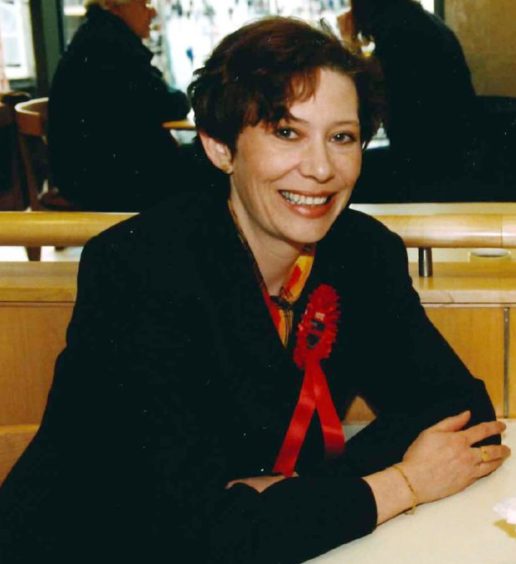
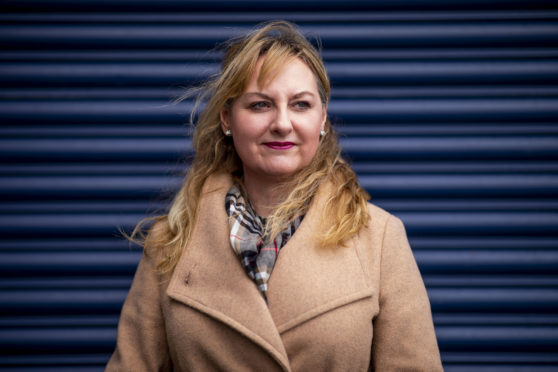
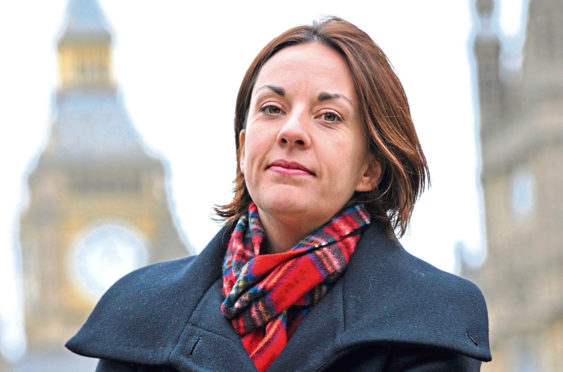

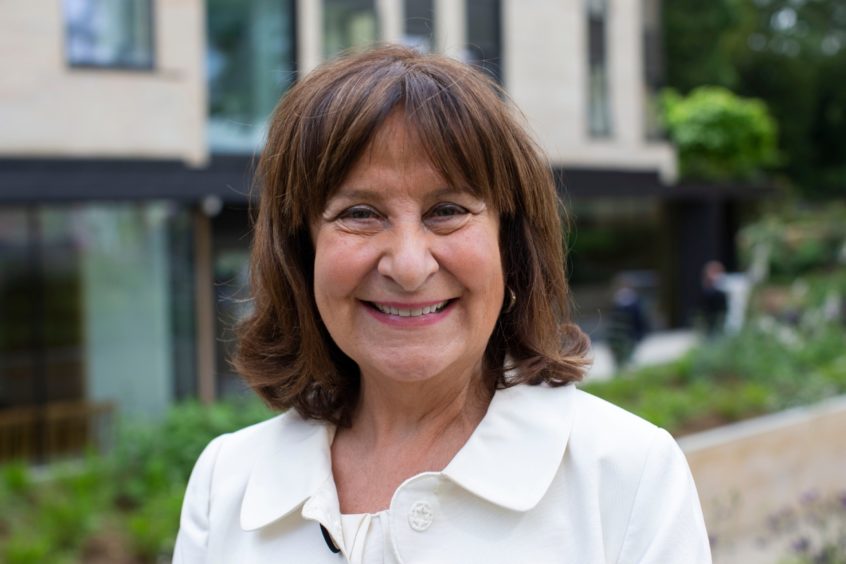 © David Hartley/Shutterstock
© David Hartley/Shutterstock